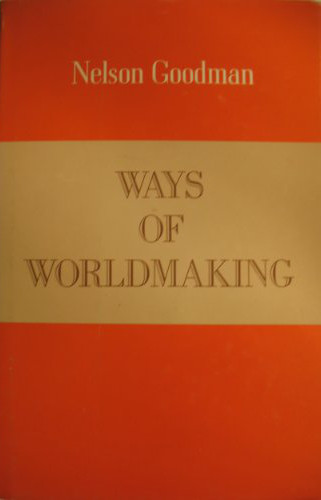Richard Kostelanetz: Dictionary of the Avant-Gardes (1993–)
Filed under book | Tags: · abstract art, aesthetics, art, art criticism, art history, art theory, avant-garde, dance, electroacoustic music, electronic music, experimental film, film, literature, mail art, music, music history, painting, performance art, poetry, radio art, sculpture, theatre, video, video art, visual poetry

“This book elucidates, celebrates, enumerates, and sometimes obliterates achievers and achievements in the avant-garde arts. Although it runs from A to Z, it could as easily have been written from Z to A (or in any other order you might imagine) and may be read from front to back, back to front, or point to point. It is opinionated, as all good dictionaries should be, but it is also inclusive, because there can never be just one avant-garde.
Blake • Rimbaud • Apollinaire • Stein • Cage • Lichtenstein • Tatlin • Keaton • Captain Beefheart • Hologram • Text-Sound Texts • Strobe Light • Grotowski • Soho • Micropress • Electronic Music • Reinhardt • Pound • Performance • Postmodern • Duchamp • Fuller • Oldenberg • Paik • Armory Show • Reich • Cunningham • Copy Culture • Pattern Poetry • Bread and Puppet Theatre” (from the back cover)
With contributions by Richard Carlin, Geof Huth, Gerald Janecek, Katy Matheson, H.R. Brittain, John Robert Colombo, Ulrike Michal Dorda, Charles Doria, and Robert Haller.
Publisher A Capella Books, an imprint of Chicago Review Press, 1993
ISBN 1556522029
246 pages
PDF
2nd edition (2000, 47 MB, added on 2020-3-18)
New additions (2011) selected for Soanyway by Derek Horton (HTML)
Nelson Goodman: Ways of Worldmaking (1978–) [EN, DE, ES, CZ, CR]
Filed under book | Tags: · aesthetics, art, art theory, epistemology, knowledge, metaphysics, perception, philosophy, representation, science, style, truth

“A major thesis of this book is that the arts must be taken no less seriously than the sciences as modes of discovery, creation, and enlargement of knowledge in the broad sense of advancement of the understanding, and thus that the philosophy of art should be conceived as an integral part of metaphysics and epistemology.” (p 102)
Publisher Hackett Publishing, Indianapolis, 1978
ISBN 0915144514, 9780915144518
148 pages
Reviews: Hilary Putnam (Journal of Philosophy, 1979), W. Charlton (Philosophical Quarterly, 1980), Robert Howell (Philosophical Review, 1982), Jay F. Rosenberg (Noûs, 1982), Jon W. Sharer (Leonardo, 1981).
Commentaries: Xavier de Donato-Rodríguez (Theoria, 2009), Pierre-André Huglo (Philopsis, 2012, FR).
Preface to an Italian edition (Achille C. Varzi, 2008, IT)
Commentary on Goodman’s aesthetics (Stanford Encyclopedia of Philosophy).
Ways of Worldmaking (English, 1978; HTML).
Ways of Worldmaking (English, UK edition by Harvester Press, 1978)
Weisen der Welterzeugung (German, trans. Max Looser, 4th ed., 1984/1998, added on 2014-10-28)
Maneras de hacer mundos (Spanish, trans. Carlos Thiebaut, 1990, no OCR)
Způsoby světatvorby (Czech, trans. Vlastimil Zuska, 1996, first 4 chapters, HTML)
Načini svjetotvorstva (Croatian, trans. Damjan Lalović, 2008)
Peter Bürger: Theory of the Avant-Garde (1974–) [DE, EN, ES, PT, CZ]
Filed under book | Tags: · 1920s, aesthetics, art, art criticism, art history, art system, art theory, avant-garde, collage, literary theory, literature, modernism

“In this volume, Peter Bürger formulates a theory of the ‘institution of art’. He argues that the social status of literature and art cannot be explained by making simple, direct links between the contents of individual works and social history. Rather, he holds, it is the social status of art, its function and prestige in society, that provides the connection between the individual art work and history. Bürger’s concept of the institution of art establishes a framework within which a work of art is both produced and received.
The French and German literary and visual avant-garde of the 1920s provides the test of Bürger’s theory. Focusing on the role of the artistic manifesto and, particularly, on the collage as an art form, he shows how avant-garde movements questioned the autonomous, self-referential status of art in bourgeois society and thus represented a radical break with the aestheticism of high modernism. Bürger attacks metaphysical aesthetics and argues instead for a materialistic aesthetic theory for today, one that is rooted in the reality of the social sphere. His theory calls into question any conventional concept of art derived from Romantic notions of organic unity.
Theory of the Avant-Garde provoked such discussion in Germany that its publisher, Suhrkamp Verlag, issued a book of responses that was more than twice the size of Bürger’s own book.” (from the back cover)
German edition
Publisher Suhrkamp, Frankfurt am Main, 1974
Second edition, 1993
147 pages
English edition
Translated by Michael Shaw
Foreword by Jochen Schulte-Sasse
Publisher University of Minnesota Press, 1984
Theory of History and Literature series, 4
ISBN 0816610673
134 pages
Reviews: Benjamin Buchloh (Art in America, 1984), Leah Ulansey (MLN, 1984), Daglind Sonolet (Telos, 1984), Michael T. Jones (German Quarterly, 1986), Martin Vrba (A2, 2016, CZ).
Publisher (DE)
Publisher (EN)
Publisher (CZ)
Theorie der Avantgarde (German, 2nd ed., 1974/1993, updated on 2020-10-13)
Theory of the Avant-Garde (English, 1984, assembled from various sources, no OCR, updated to full version on 2014-5-12 via Charles, updated to OCR version on 2016-1-23 via a2, 12 MB)
Teoría de la vanguardia (Spanish, trans. Jorge García, 1987), 3rd edition (2000, 51 MB)
Teoria da vanguarda (Portuguese, trans. Ernesto Sampaio, 1993)
Teorie avantgardy (Czech, trans. Václav Magid, 2015, added on 2020-4-5)
See also Bürger’s essay Avant-Garde and Neo-Avant-Garde: An Attempt to Answer Certain Critics of Theory of the Avant-Garde, 2010.
Comments (4)
